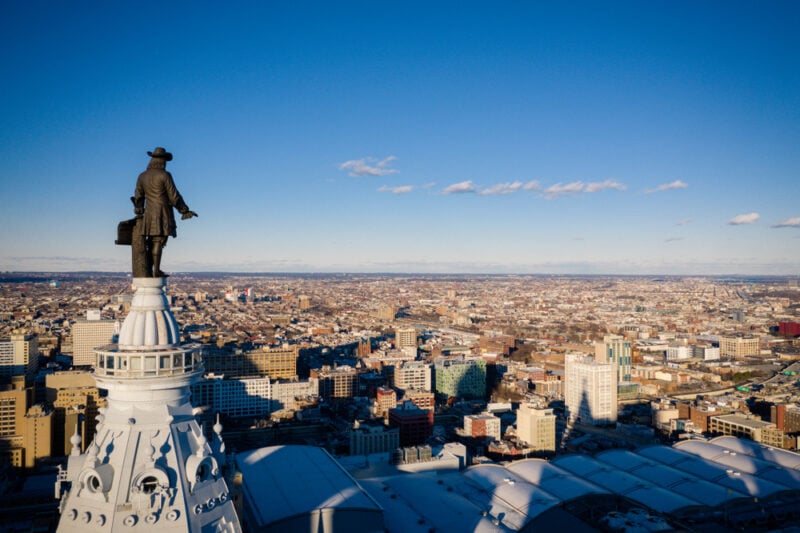The 30 Best High Schools in the Southeast U.S.: Rankings and Academic Performance
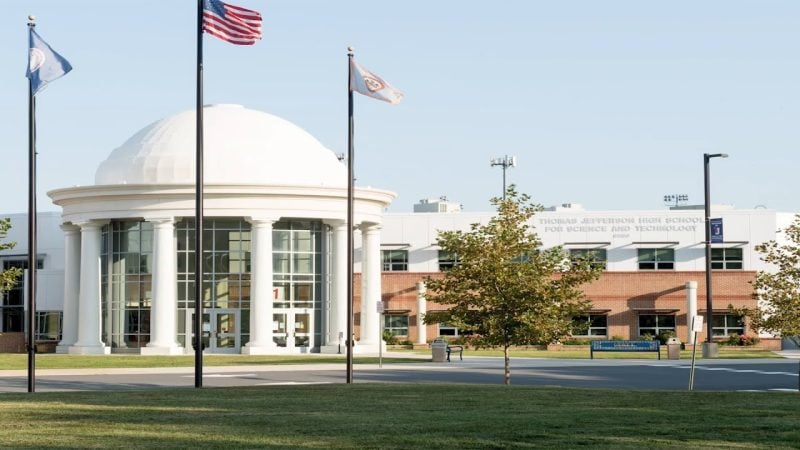
Selecting the right high school represents one of the most crucial educational decisions families make, as it directly influences college preparation, academic achievement, and future opportunities.
The Southeast region offers an exceptional collection of educational institutions that consistently rank among the nation’s top performers.
This comprehensive ranking examines 30 outstanding high schools across the Southeast, evaluating both public and private institutions based on academic excellence, college preparation programs, and student outcomes.
The featured schools span from Virginia to Florida, encompassing renowned STEM academies, prestigious private institutions, innovative charter schools, and high-performing public schools that serve diverse student populations throughout the region.
Here are the 30 best high schools in the Southeast:
1. Thomas Jefferson High School for Science and Technology, VA
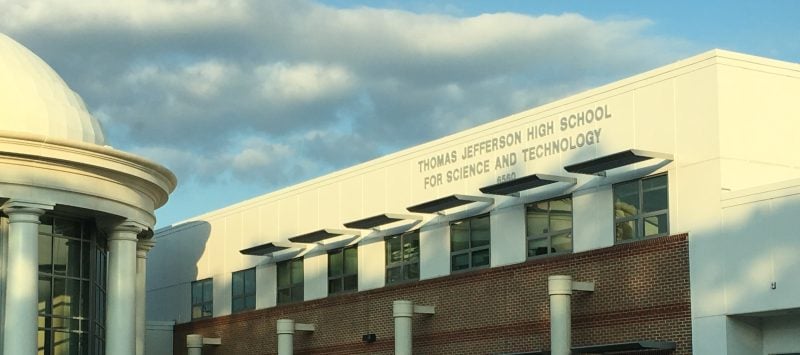
Thomas Jefferson High School for Science and Technology stands as one of the nation’s premier public magnet schools. Located in Alexandria, Virginia, it serves as part of the Fairfax County Public Schools system.
The school has consistently earned top national rankings from U.S. News & World Report. It held the number one position for three consecutive years from 2020 to 2022. Recent rankings show it at fifth place in 2023 and fourteenth in 2024.
TJ enrolls 2,015 students in grades 9-12 with a student-teacher ratio of 17 to 1. The school maintains exceptionally high academic performance standards.
State test scores demonstrate the school’s academic excellence. Ninety-five percent of students achieve proficiency in mathematics, while ninety-nine percent reach proficiency in reading.
The institution offers Advanced Placement courses and operates 27 sports programs for student athletes.
2. Northside High School, GA
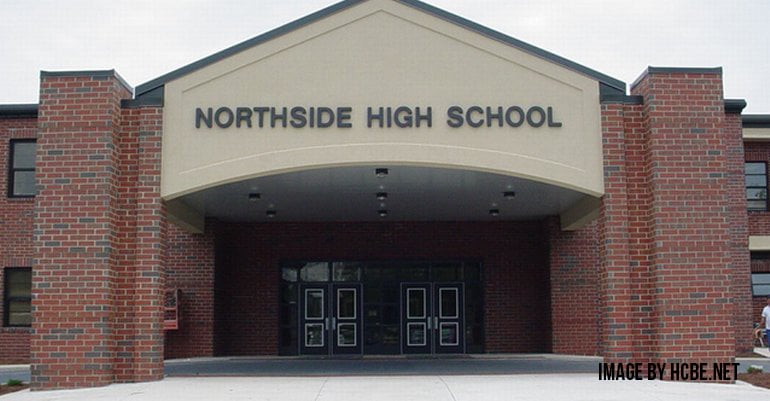
Northside High School in Columbus, Georgia serves 1,417 students in grades 9-12 within the Muscogee County School District. The school maintains a strong academic reputation with consistent performance metrics.
The institution ranks 107th out of 458 Georgia high schools and falls within the top 50% of public schools statewide. It has sustained a 4-star rating from SchoolDigger for most of the past decade.
Northside High School offers Advanced Placement courses and Project Lead The Way curriculum programs. The school maintains a student-teacher ratio of 15.9 to 1, providing reasonable class sizes for instruction.
The school has consistently placed in the top 30% of Georgia high schools over the past ten years. Students have access to athletic programs with two sports offerings and various extracurricular activities.
3. Academy for Classical Education, NC
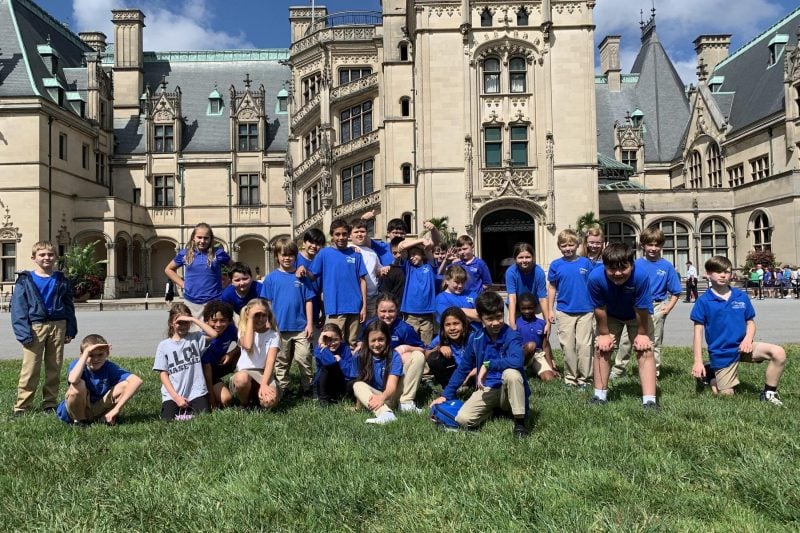
The Academy for Classical Education stands as a notable institution in North Carolina’s educational landscape. This school follows the classical education model that emphasizes traditional liberal arts curriculum.
Classical education has gained momentum across North Carolina in recent years. The Heritage Foundation identifies 43 classical schools operating throughout the state as of 2024.
The academy focuses on time-tested educational methods rooted in classical curriculum principles. Students receive instruction that emphasizes critical thinking, rhetoric, and foundational academic skills.
North Carolina’s classical education movement reflects growing parent demand for traditional educational approaches. These schools typically implement Direct Instruction methods alongside classical curriculum frameworks.
The school serves students seeking rigorous academic preparation within a structured learning environment. Classical education proponents cite its effectiveness in developing strong analytical and communication skills among graduates.
4. St. Johns Country Day School, FL
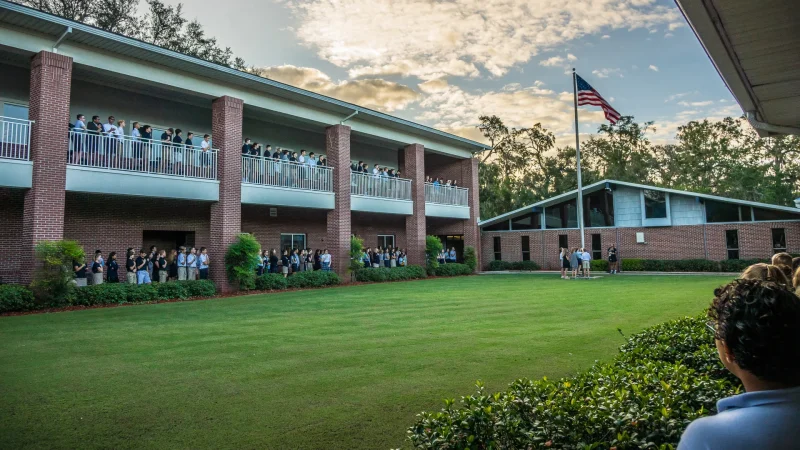
St. Johns Country Day School stands as a premier private institution in Orange Park, Florida. Founded in 1953, this college preparatory school serves students from prekindergarten through 12th grade.
The school maintains a strong academic reputation, ranking within the top 20% of private schools in Florida. With approximately 491 to 632 students enrolled, St. Johns provides an intimate learning environment with a 7-to-1 student-teacher ratio.
The curriculum emphasizes rigorous academics with Advanced Placement courses available. Students benefit from a seasoned faculty and challenging coursework designed to prepare them for college success.
Athletics play a significant role at St. Johns, offering 24 different sports programs. The Spartan teams have achieved multiple state championships, demonstrating excellence beyond the classroom.
The school admits qualified students regardless of gender, race, or ethnic background. This inclusive approach creates a diverse learning community that prepares students for success in higher education and beyond.
5. Episcopal High School, VA
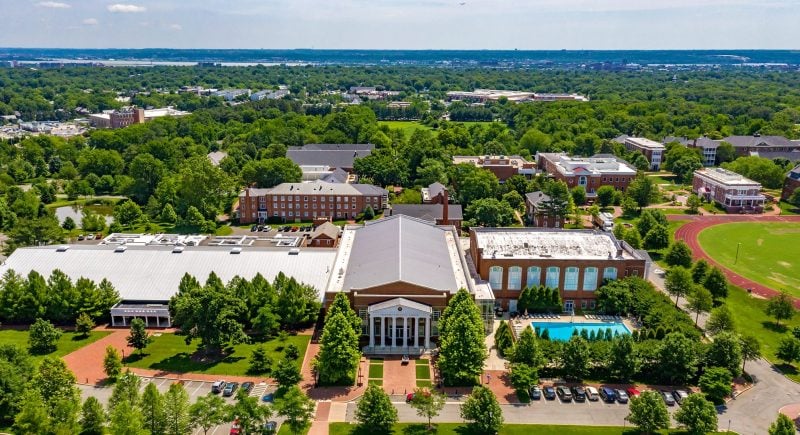
Episcopal High School in Alexandria, Virginia ranks among the top 20% of private schools in the state. The school serves 451 students in grades 9-12 on its campus.
Students at Episcopal benefit from small class sizes and personalized attention. The school maintains high academic standards with rigorous coursework preparation.
Episcopal graduates matriculate to prestigious universities nationwide. Recent graduates have attended University of Virginia, Wake Forest University, and Washington and Lee University among others.
The school operates as a boarding institution, creating a close-knit community environment. Students develop leadership skills through various extracurricular activities and athletics programs.
Episcopal High School consistently receives recognition for academic excellence. The institution has established itself as one of Virginia’s premier college preparatory schools.
6. Baylor School, TN
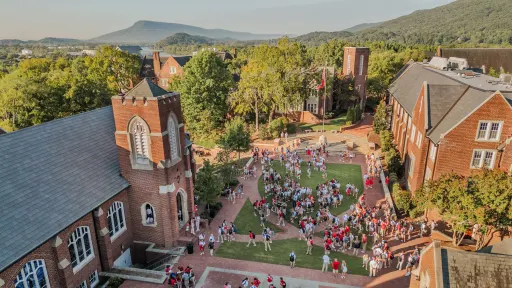
Baylor School stands as one of Tennessee’s premier private institutions in Chattanooga. Founded in 1893, the school operates on a sprawling 690-acre campus serving students in grades 6-12.
The school enrolls approximately 1,100 students with a favorable 10:1 student-teacher ratio. Baylor offers both day and boarding programs, with residential options available for grades 9-12.
Baylor ranks within the top 20% of private schools statewide. The institution maintains strong academic standards as a college-preparatory school with an established reputation for excellence.
Athletic programs distinguish Baylor from many competitors. MaxPreps recently named Baylor the top high school in Tennessee based on their comprehensive sports rankings system.
The school combines rigorous academics with extensive extracurricular opportunities. Baylor’s boarding program attracts students nationally and internationally, contributing to its diverse student body and comprehensive educational experience.
7. The Westminster Schools, GA
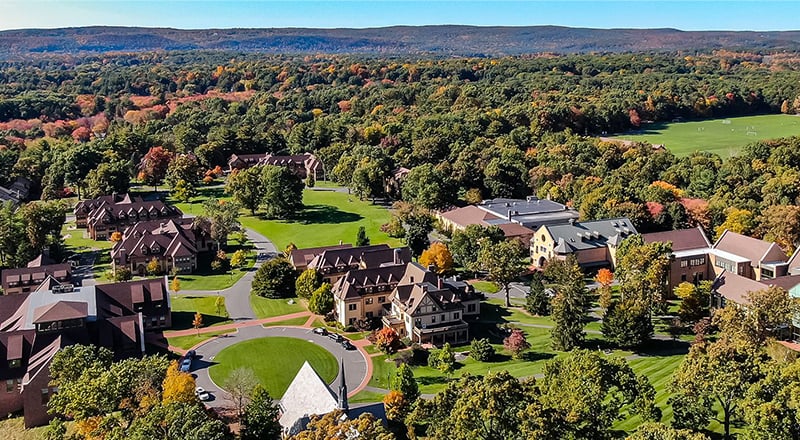
The Westminster Schools stands as Georgia’s top-ranked private high school according to Niche rankings. Located in Atlanta, this prestigious institution serves 1,901 students across grades kindergarten through 12th grade.
The school maintains an impressive 6:1 student-teacher ratio. This low ratio allows educators to provide individualized attention to each student in a conducive learning environment.
Westminster consistently ranks within the top 20% of private schools statewide. The institution has earned national recognition, placing in the top 10 across three categories for private schools nationwide.
Annual tuition reaches $34,106 for families seeking enrollment. Students demonstrate strong academic performance on standardized assessments, reflecting the school’s rigorous curriculum and college preparation programs.
The campus operates with a total enrollment of approximately 1,900 students. Westminster’s combination of academic excellence, small class sizes, and comprehensive programs solidifies its position among the Southeast’s premier educational institutions.
8. Seacrest Country Day School, FL
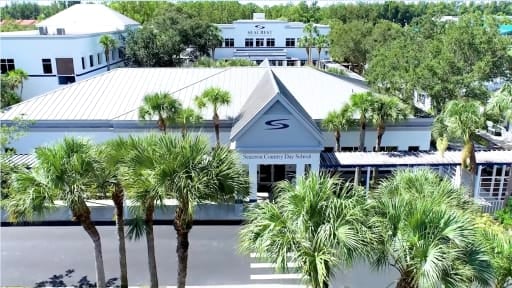
Seacrest Country Day School serves 470 students from Pre-K through 12th grade in Naples, Florida. The school ranks within the top 20% of private schools statewide.
The institution maintains an 8:1 student-to-teacher ratio. This small class size allows for personalized attention and enhanced learning experiences.
Students access Advanced Placement courses and can participate in 21 different sports programs. The school offers basketball, volleyball, golf, and cross country among its athletic options.
Academic facilities include advanced science laboratories, a media center, and a dedicated technology center. Music and arts rooms support creative learning initiatives.
The high school curriculum emphasizes hands-on learning combined with academic rigor. Students explore specialized areas including robotics, environmental sciences, and engineering through focused studies and internship opportunities.
Seacrest has earned recognition as the best private school in Naples according to local voting.
9. Pine Crest School, FL
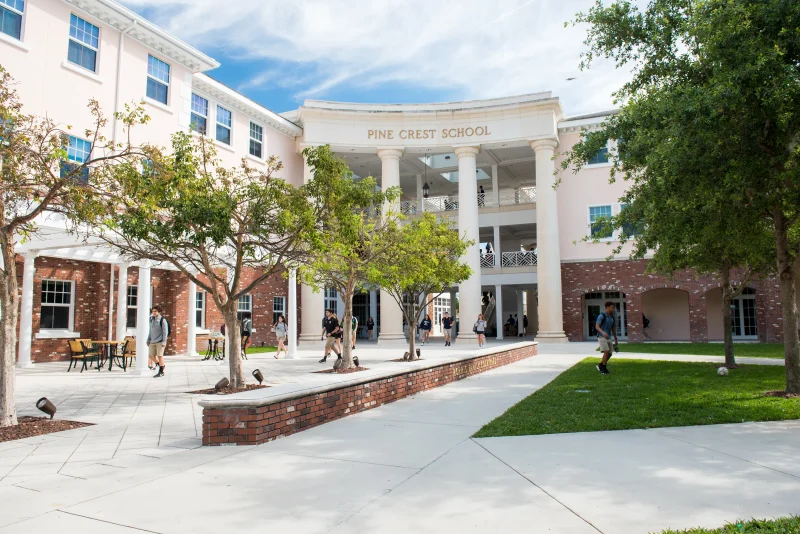
Pine Crest School in Fort Lauderdale ranks among Florida’s premier private educational institutions. Founded in 1934, the school has established itself as a leader in academic excellence.
The Washington Post’s Jay Mathews Challenge Index named Pine Crest the number one private school in the nation for 2023. This ranking system has evaluated high schools since 1998.
Pine Crest serves students from grades 2 through 12 with a total enrollment of 841 students. The student-teacher ratio stands at 17:1, providing individualized attention.
The U.S. Department of Education has recognized Pine Crest as a “Blue Ribbon School.” The Washington Post also ranked it among the top two private schools nationally for college preparation in 2012.
The school consistently sends graduates to top universities. Its rigorous academic programs and comprehensive student development approach have earned national recognition across multiple ranking systems.
10. Shiloh High School, GA
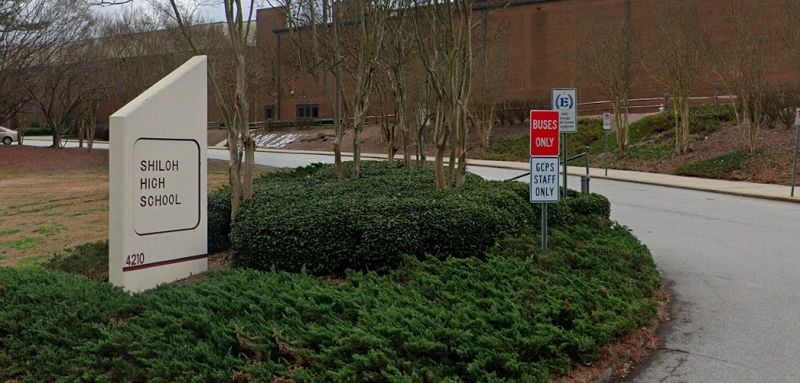
Shiloh High School in Snellville, Georgia serves 2,188 students as part of the Gwinnett County Public Schools system. The school opened in 1984 and maintains a student-teacher ratio of 18:1.
The school ranks 30th among Georgia high schools according to U.S. News rankings. Students can access Advanced Placement courses and International Baccalaureate programs for rigorous academic preparation.
Shiloh offers 27 different sports programs for athletic participation. The school draws students from multiple elementary schools in the Shiloh Cluster, including Anderson Livsey, Annistown, Centerville, Partee, and Shiloh Elementary Schools.
Principal Cappy Douglass leads the institution located at 4210 Shiloh Road. The school emphasizes Gwinnett County’s strategic priorities of empathy, equity, effectiveness, and excellence in its educational approach.
11. Jesuit High School, FL
Jesuit High School in Tampa serves 872 students in grades 9-12. The all-boys Catholic institution ranks within the top 20% of private schools in Florida.
The school operates under the Jesuit Secondary Education Association framework. This provides students with rigorous academic preparation rooted in Jesuit educational traditions.
Jesuit High School consistently appears on rankings for Florida’s best Catholic and all-boys private schools. The institution emphasizes college preparatory coursework alongside character development.
Located in Tampa, the school draws students from across the metropolitan area. The Jesuit educational model focuses on developing well-rounded graduates prepared for higher education.
The school’s reputation extends beyond Florida, reflecting the broader network of Jesuit secondary schools throughout the United States. Students benefit from this established educational tradition dating back centuries.
12. Charlotte Latin School, NC
Charlotte Latin School ranks among the top 20% of private schools in North Carolina. The school serves over 1,500 students from nursery through 12th grade as an independent, college-preparatory institution.
The school maintains an 8:1 student-to-teacher ratio with enrollment of approximately 1,469 students. This makes Charlotte Latin the 4th largest private high school in North Carolina.
Charlotte Latin participates in the North Carolina Independent Schools Athletic Association (NCISAA). The school has achieved significant athletic success with 165 total championships across 66 sports teams.
The campus features extensive facilities including three gymnasiums, an indoor track, and seven playing fields. A 1,500-seat facility supports various athletic programs.
The school operates as a non-sectarian, coeducational day school that emphasizes traditional values and college preparation. Charlotte Latin consistently ranks among North Carolina’s top private schools for academic performance.
13. The Walker School, GA
The Walker School stands as a premier college preparatory institution in Marietta, Georgia. This private school serves 909 students from prekindergarten through 12th grade.
The school ranks within the top 20% of private schools in Georgia. It holds the distinction of being the top private school in Cobb County according to Niche.com rankings.
Walker maintains a favorable 9:1 student-teacher ratio. The school emphasizes STEM education with robotics and tinker spaces available across all grade levels.
The institution has built a reputation for its dedicated teaching staff. Faculty members focus on empowering students to explore and develop a passion for lifelong learning.
The diverse and inclusive community at Walker prepares students for college success. The school combines rigorous academics with character development programs.
14. Montgomery Bell Academy, TN
Montgomery Bell Academy stands as Nashville’s premier all-boys private school, founded in 1867. The institution serves 851 students across grades 7-12 with a focus on developing “Gentlemen, Scholars, Athletes.”
MBA ranks within the top 20% of private schools in Tennessee. The school offers rigorous college preparatory academics with numerous Advanced Placement courses available to students.
The campus features exceptional facilities that support both academic and athletic pursuits. Students benefit from a strong brotherhood atmosphere that characterizes the all-boys environment.
The curriculum emphasizes broad foundational skills during early high school years. Juniors and seniors receive expanded course options to customize their academic paths according to individual interests and college goals.
Montgomery Bell Academy’s comprehensive approach prepares students for admission to top-tier universities. The school combines challenging academics with competitive athletics and diverse extracurricular programs to develop well-rounded graduates.
15. St. Andrew’s School, NC
St. Andrew’s School stands as a premier independent college preparatory institution in Boca Raton, Florida, not North Carolina. The school serves students in grades 6-12 with a rigorous academic program.
The campus spans 81 acres and features state-of-the-art facilities. Students benefit from small class sizes with an average student-to-teacher ratio of 8:1.
St. Andrew’s offers Advanced Placement courses across multiple disciplines. The school maintains strong college placement rates with graduates attending top-tier universities nationwide.
Athletics play a significant role in school culture. The Scots compete in various sports including lacrosse, tennis, and sailing.
The school emphasizes character development alongside academic excellence. Students participate in community service requirements and leadership opportunities throughout their tenure.
St. Andrew’s attracts families seeking a challenging preparatory education. The institution combines traditional values with modern educational approaches to prepare students for higher education success.
16. Holy Innocents’ Episcopal School, GA
Holy Innocents’ Episcopal School stands as the nation’s largest Episcopal parish day school. The Atlanta-area institution serves over 1,300 students from prekindergarten through 12th grade.
Located in Sandy Springs, the school operates on a 43-acre campus north of Chastain Park. The facility features an expansive pedestrian-friendly quad as its central anchor.
The school ranks within the top 20% of private schools in Georgia. Students benefit from a student-teacher ratio of 4:1, providing personalized attention in academic settings.
Holy Innocents’ holds the distinction of being Georgia’s first Round Square International School. This designation creates opportunities for global learning experiences and international connections.
The college-preparatory curriculum emphasizes academics alongside arts, athletics, and spiritual formation. Students can explore diverse interests through comprehensive programming across all grade levels.
17. Holland Hall School, OK
Holland Hall School stands as Tulsa’s only PreK-Grade 12 independent Episcopal institution. Founded in 1922, the school maintains its original mission of providing individual attention to each student.
The school serves approximately 1,032 students across all grade levels. It maintains a favorable student-to-faculty ratio of 10:1, supporting personalized education.
Holland Hall ranks among the top 20% of private schools in Oklahoma. The institution earned recognition as the 121st best Christian high school in America according to recent rankings.
Located on what many consider Tulsa’s most beautiful campus, the school operates as a college preparatory day school. It holds affiliation with the Episcopal Diocese of Oklahoma and the Episcopal Church.
The school consistently ranks as one of the top private high schools in Tulsa County. Its tuition costs fall below the Oklahoma private school average, making quality education more accessible to families.
18. Memphis University School, TN
Memphis University School stands as a premier college-preparatory institution for boys in grades 6-12. The school has maintained excellence in boys’ education since its founding in 1893.
MUS operates as a private school focused on rigorous academic preparation. Students receive comprehensive education designed to prepare them for top-tier colleges and universities.
The school offers extensive athletic programs alongside its academic curriculum. Students participate in various sports that complement their classroom learning.
Campus life at MUS includes diverse extracurricular activities and clubs. These programs allow students to explore interests beyond traditional academics.
The institution serves students throughout the Memphis metropolitan area. Its long-standing reputation attracts families seeking quality preparatory education for their sons.
MUS combines traditional educational values with modern teaching methods. The school maintains high academic standards while fostering personal growth and leadership development among its students.
19. The Bolles School, FL
The Bolles School stands as a premier private college preparatory institution in Jacksonville, Florida. Founded in 1933, this day and boarding school serves approximately 1,714 students across grades prekindergarten through 12.
The school operates across four campuses throughout the Jacksonville area. It maintains a favorable student-teacher ratio of 8 to 1, ensuring personalized attention for each student.
Bolles ranks within the top 20% of private schools in Florida. The institution offers Advanced Placement courses and maintains strong college preparation standards, with 96% of graduates attending four-year colleges.
Athletic excellence defines much of Bolles’ reputation. The school ranks third among Florida high schools for athletes and offers 28 different sports programs.
The athletic program has produced 163 team state titles and 105 state runner-up finishes across 20 sports. This track record demonstrates consistent competitive success at the state level.
20. Raleigh Charter High School, NC
Raleigh Charter High School serves grades 9-12 in North Carolina’s capital city. The school enrolls 564 students and operates as the sole charter high school in the Raleigh area.
The institution consistently ranks among North Carolina’s top performing schools. It holds a position between 51st and 62nd out of 626 high schools statewide for recent academic years.
SchoolDigger awards the school a 5-star rating, the highest possible designation. This rating reflects sustained academic excellence over multiple school years.
U.S. News & World Report recognized Raleigh Charter High School in their national rankings. The school earned placement among the top 500 high schools nationwide in both 2023 and 2024.
The student body represents diverse backgrounds across racial and ethnic groups. Academic programs prepare students for college readiness and advanced coursework opportunities.
21. Mount Vernon Presbyterian School, GA
Mount Vernon Presbyterian School serves 1,099 students in Atlanta, Georgia. The school maintains a student-teacher ratio of 8:1, providing personalized attention in smaller classroom settings.
The institution operates as an independent school covering grades from Preschool through Grade 12. Mount Vernon ranks within the top 20% of private schools in Georgia.
The school holds notable rankings including #10 among Best Christian Schools in Georgia and #22 for Best Private K-12 Schools in the state. It also ranks #23 among Best Private High Schools in Georgia.
Mount Vernon’s student body has a minority enrollment of 17.8%. The school emphasizes academic excellence while maintaining its Christian educational foundation.
The Class of 2024 marked a milestone as the largest graduating class in school history with 119 students. This achievement reflects the school’s growing reputation and student retention.
22. Lake Highland Preparatory School, FL
Lake Highland Preparatory School stands as Orlando’s largest private school and the fourth-largest in Florida. The institution serves 2,060 students from pre-K through 12th grade across three campuses spanning 43 acres in downtown Orlando.
The school ranks within the top 20% of private schools in Florida. It holds accreditation from the Florida Council of Independent Schools, Southern Association of Independent Schools, and Cognia.
Lake Highland maintains a 12:1 student-teacher ratio and offers Advanced Placement courses. The athletic program features 26 different sports for student participation.
The school operates as the 8th largest coeducational independent day school nationally. Students receive recognition in academics, arts, and athletics at the national level.
Lake Highland earned the top ranking among Orlando private schools in 2023. The institution provides educational opportunities from nursery through high school graduation.
23. Columbus Academy, GA
Columbus Academy stands as a distinguished private institution in Columbus, Georgia. The school maintains high academic standards through rigorous college preparatory programs.
Students benefit from small class sizes that enable personalized attention from faculty. The academy emphasizes both academic excellence and character development.
The curriculum includes Advanced Placement courses across multiple subjects. Students consistently perform well on standardized tests and college entrance examinations.
Columbus Academy offers diverse extracurricular activities including athletics, arts programs, and leadership opportunities. The school’s graduation rate remains consistently high.
Faculty members hold advanced degrees and bring extensive teaching experience. They focus on developing critical thinking skills and preparing students for higher education.
The campus provides modern facilities that support both academic and athletic programs. Students have access to updated technology and learning resources throughout their educational experience.
24. Darlington School, GA
Darlington School stands as Georgia’s top-ranked boarding high school according to Niche’s 2024 rankings. Located in Rome, Georgia, this prestigious institution has served students for over 100 years since its founding in 1905.
The school operates as both a day school for pre-K through 12th grade and a boarding school for grades 9-12. It enrolls approximately 800 students with a student-teacher ratio of 5:1, ensuring personalized attention.
Darlington ranks in the top 20% of private schools in Georgia. The diverse student body represents more than 20 countries and nearly half of U.S. states each year.
The school maintains strong academic standards with 100% of graduates attending four-year colleges. Located in the foothills of north Georgia’s mountains, Darlington provides a college-preparatory education in a scenic setting.
25. The Lovett School, GA
The Lovett School stands as one of Georgia’s premier private institutions, serving 1,625 students from kindergarten through 12th grade in Atlanta. The school ranks within the top 20% of private schools statewide.
Founded as an independent, coeducational institution, Lovett maintains a commitment to developing students of honor, faith, and wisdom. The school operates within the Judeo-Christian tradition while welcoming students from diverse ethnic, cultural, racial, and religious backgrounds.
With a student-teacher ratio of 8.0 to 1, Lovett provides personalized attention in its challenging academic environment. The school offers Advanced Placement courses to prepare students for college-level work.
Athletic programs feature 65 competitive teams across 16 sports, providing extensive opportunities for student participation. Weekly nondenominational chapel services reinforce the school’s emphasis on character development alongside academic excellence.
26. Fulton Science Academy, GA
Fulton Science Academy Private School stands as Georgia’s top-ranked private institution for STEAM education. Located in Alpharetta, the school serves approximately 1,000 students from prekindergarten through 12th grade.
The academy has earned recognition as a National Blue Ribbon School from the U.S. Department of Education. Character.org has also designated it as a National Character School for its commitment to developing well-rounded students.
Niche.com ranks Fulton Science Academy as the number one STEM high school in Georgia. The school consistently places within the top 20% of private schools statewide based on academic performance and student outcomes.
The institution emphasizes rigorous STEAM curriculum through innovative teaching methods. Students benefit from specialized programs in science, technology, engineering, arts, and mathematics that prepare them for advanced college coursework and competitive university admissions.
27. Woodward Academy, GA
Woodward Academy stands as one of Georgia’s premier private educational institutions. The school serves 2,447 students across grades Pre-K through 12 in the Atlanta area.
The academy ranks within the top 20% of private schools statewide. It holds the distinction of being Georgia’s largest private high school and ranks 16th nationally by enrollment size.
Woodward Academy offers comprehensive college-preparatory education with diverse academic programs. The school maintains a strong reputation for academic excellence and rigorous curricula that prepare students for higher education.
The institution provides extensive extracurricular activities alongside its academic offerings. Students benefit from a well-rounded educational experience that emphasizes both scholastic achievement and personal development.
Located in College Park, the academy has established itself as a leading choice for families seeking quality private education in the Southeast region.
28. St. Stephens Episcopal School, AL
St. Stephens Episcopal School serves students in Alabama with a focus on college preparatory education. The school maintains a commitment to academic excellence within a structured learning environment.
The institution offers comprehensive educational programs designed to prepare students for higher education. Students receive instruction across core academic subjects with additional opportunities in extracurricular activities.
The school emphasizes both academic achievement and character development. Faculty members work closely with students to ensure individual academic growth and success.
St. Stephens Episcopal School maintains smaller class sizes that allow for personalized attention. This approach enables teachers to address individual student needs more effectively.
The campus provides resources and facilities that support various learning styles. Students have access to academic support services and college counseling to assist with their educational journey.
29. Florida Christian School, FL
Florida Christian School provides a comprehensive college-preparatory education grounded in Biblical principles. The institution maintains a non-discriminatory admissions policy, welcoming students of all races and ethnic backgrounds.
The high school program features a robust academic curriculum designed to prepare students for higher education. Students benefit from award-winning performing and visual arts programs alongside competitive athletic opportunities.
All educational offerings integrate a Biblical worldview into the learning experience. The school emphasizes both academic excellence and character development through its faith-based approach.
Florida Christian School serves students from kindergarten through 12th grade. The institution focuses on providing students with the knowledge and skills necessary for college success while maintaining strong Christian values throughout all programs and activities.
30. Durham Academy, NC
Durham Academy stands as North Carolina’s top-ranked private K-12 school according to Niche. The institution places within the country’s top 50 private schools nationally.
The school serves 1,232 students from Pre-Kindergarten through 12th grade. It ranks as the 8th largest private high school in North Carolina and 157th largest nationally.
Durham Academy maintains a 6:1 student-to-teacher ratio. This low ratio provides students with direct support from teachers and fosters connections in an intimate learning environment.
The school has established itself as a leader in academic excellence within the Durham area. Students benefit from innovative programs designed to prepare them for college and future careers.
Durham Academy’s reputation extends beyond state borders, attracting families seeking high-quality private education in North Carolina.
What Sets Southeast U.S. High Schools Apart
Southeast high schools distinguish themselves through specialized STEM academies, robust agricultural programs, and strong community partnerships. The region’s schools excel in college preparation while maintaining deep connections to local traditions and industries.
Distinguishing Academic Programs
Southeast high schools offer specialized academic tracks that reflect regional strengths and industry needs. Dual enrollment programs with state universities allow students to earn college credits while completing high school requirements.
Many schools feature engineering and technology academies that partner with major employers like Boeing, Lockheed Martin, and NASA facilities throughout the region. These programs provide hands-on experience with aerospace technology and advanced manufacturing.
Agricultural science programs remain particularly strong in rural areas. Students participate in FFA competitions, manage school farms, and study sustainable farming practices that address modern agricultural challenges.
Advanced Placement participation rates have increased significantly across the Southeast. Schools like those in North Carolina and Virginia consistently rank among the top states for AP course availability and student performance.
Medical and health science academies prepare students for healthcare careers through partnerships with regional medical centers. Students gain clinical experience and exposure to cutting-edge medical technology.
Unique Extracurricular Opportunities
Southeast schools offer distinctive extracurricular activities that reflect regional culture and geography. Marine science programs along coastal areas provide students with unique research opportunities in oceanography and environmental science.
Competitive robotics teams have gained prominence throughout the region. Schools regularly compete in FIRST Robotics competitions, with many advancing to national championships.
Traditional activities like debate teams and forensics maintain strong followings. The Southeast produces numerous national champions in speech and debate competitions annually.
Community service initiatives connect students with local organizations and charities. Programs like the Falcon Cup mentioned in school activities demonstrate how students engage in meaningful philanthropic work.
Music programs emphasize both traditional and contemporary styles. Marching bands and show choirs compete at regional and national levels, while jazz ensembles explore the region’s musical heritage.
Regional Educational Strengths
The Southeast demonstrates particular strength in college readiness metrics. Graduation rates have improved consistently over the past decade, with many states exceeding national averages.
Teacher quality initiatives across the region focus on recruiting and retaining experienced educators. States like North Carolina and Georgia have implemented comprehensive teacher development programs.
Regional schools excel in standardized test performance, particularly in mathematics and science assessments. This success stems from targeted curriculum improvements and professional development investments.
Technology integration has accelerated throughout Southeast schools. Many districts provide one-to-one device programs and high-speed internet access that supports digital learning initiatives.
The region’s schools benefit from strong community partnerships with local businesses and higher education institutions. These relationships provide internship opportunities, mentorship programs, and career pathway development that directly benefits students’ post-graduation success.
Impact of School Rankings on Students and Communities
High school rankings create measurable effects on student outcomes and local economic development. Top-ranked schools typically provide enhanced pathways to selective colleges while simultaneously driving property values and business investment in surrounding areas.
College Admissions and Scholarship Opportunities
Students attending highly ranked high schools gain significant advantages in college admissions processes. Admissions officers recognize prestigious school names and often view applicants from top-tier institutions more favorably during competitive selection rounds.
These schools typically offer robust Advanced Placement programs, with some providing 20+ AP courses compared to 5-10 at average schools. Students accumulate college credits while demonstrating academic rigor to university admissions committees.
Merit-based scholarship opportunities increase substantially for graduates of top-ranked institutions. National Merit Scholarship recognition rates often exceed 15% at elite schools versus under 2% nationally.
College counseling resources at ranked schools frequently include dedicated staff members who maintain relationships with admissions officers at selective universities. This networking advantage translates into higher acceptance rates at competitive institutions.
Students also benefit from stronger teacher recommendation letters, as faculty at top schools often hold advanced degrees and understand college admissions expectations more thoroughly.
Community Reputation and Local Growth
High school rankings directly influence local property values and economic development patterns. Homes in top-ranked school districts command premium prices, often 10-20% higher than comparable properties in average districts.
Businesses actively seek locations near highly rated schools to attract educated workforce talent. Technology companies and professional service firms particularly value proximity to communities with strong educational reputations.
Local tax bases strengthen as affluent families relocate to access quality schools. This creates positive feedback loops where increased funding further improves educational resources and rankings.
Real estate agents prominently feature school ratings in marketing materials, making rankings a primary factor in residential purchasing decisions. Communities with declining school performance often experience corresponding property value decreases.
Municipal leaders invest heavily in maintaining school quality because educational reputation affects broader economic competitiveness and population retention rates.




